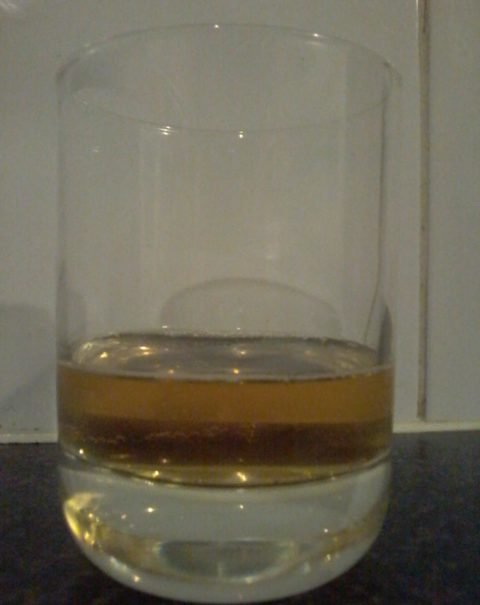
There’s No Un‑Hearing This Scientist’s Explanation of Fermentation

There’s No Un‑Hearing This Scientist’s Explanation of Fermentation
Ginger Beer in Sydney
I’ve been to maybe half-a-dozen tastings in my life. A flight of whiskies at a Scottish distillery; a beer sampler at a brewery in Sydney; and a couple of cellar-door wine evenings.
Most of them have been shambolic affairs, although there’s a pattern to them. At first everyone’s a gourmand, sincere about the early vanillin note on this one and the woodruff aftertaste on that one. But after you’ve gone through 10 or 12 varieties of shiraz, it’s a bit different. Your teeth are redder than a betel addict’s, everything tastes like second-hand tea leaves, and you might as well have gone to the pub.
I’m hoping this one will be a little different, partly because it’s ginger beer on show tonight but mostly because my host is kind of a mad scientist. Dr. Cain is a microbiochemist with an alarmingly Biblical name and a sideline in brewing moonshine. (This ginger beer is not sweetened, carbonated soda, but the boozy kind, made from fermented ginger, yeast, and sugar.)
She’s agreed to talk me through her latest concoction. Apparently, there’s a connection between her day job and her beer job. “Being in the lab is very much like cooking,” she tells me, “and a lab protocol is kind of like a recipe.”
Except, of course, that home brewers are a less pedantic bunch than microbiochemists (without insult to either). “The first thing I did [when beginning to brew] was take a bunch of protocols, extract the relevant information, worked out the formulas and wrote my own.”
That kind of specificity doesn’t sound like my kind of fun, but I guess fun comes in different flavors—and I can’t argue with tonight’s. The good doctor cracks a bottle and decants it into a wide-bottomed glass like a brandy tumbler. The taste is definitely gingery without being overwhelmingly fiery; sweet but not sugary; sour but not in a scrunch-up-your-nose kind of way. There’s a very distinct flatness to it that I’m not used to, something syrupy that goes beyond the absence of carbonation. Another taster describes it as “not the teeth-fuzz variety of ginger beer.” It reminds me of nothing so much as a Spanish cider, and I could happily drink it all night.
“Being a microscientist,” Dr. Cain explains, “and being quite aware of sterility, winemaking is such an inexact process.” She uses the example of roasting lamb in an autoclave as illustration. She doesn’t agree that brewing is an art, calling that “flowery,” and is prosaic about fermentation. “When [the yeast] eat the sugar, they basically shit out the alcohol.” At this point I decide that Dr. Cain is the kind of brewer that puts the poetry in the bottle, not on the label.
When the ginger beer’s finished, we move on to wine (vermentino, a Sicilian white that’s been making headway in Australia) and the conversation spirals away. Dr. Cain tells me about Iberian grapes and Manuka honey; about the looming antibiotic apocalypse; about suicide genes in seedless fruit. We discuss transporting hazardous or delicate biosamples, and the cost involved; and enzymes that can slice themselves apart spontaneously or on command. It’s the most informative tasting that I’ve ever been to.